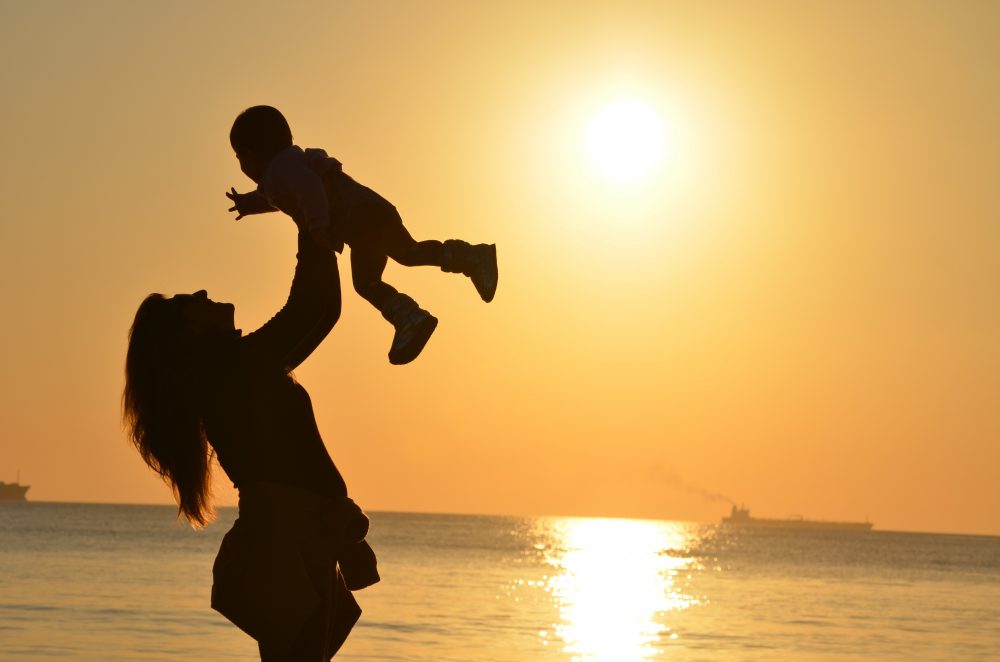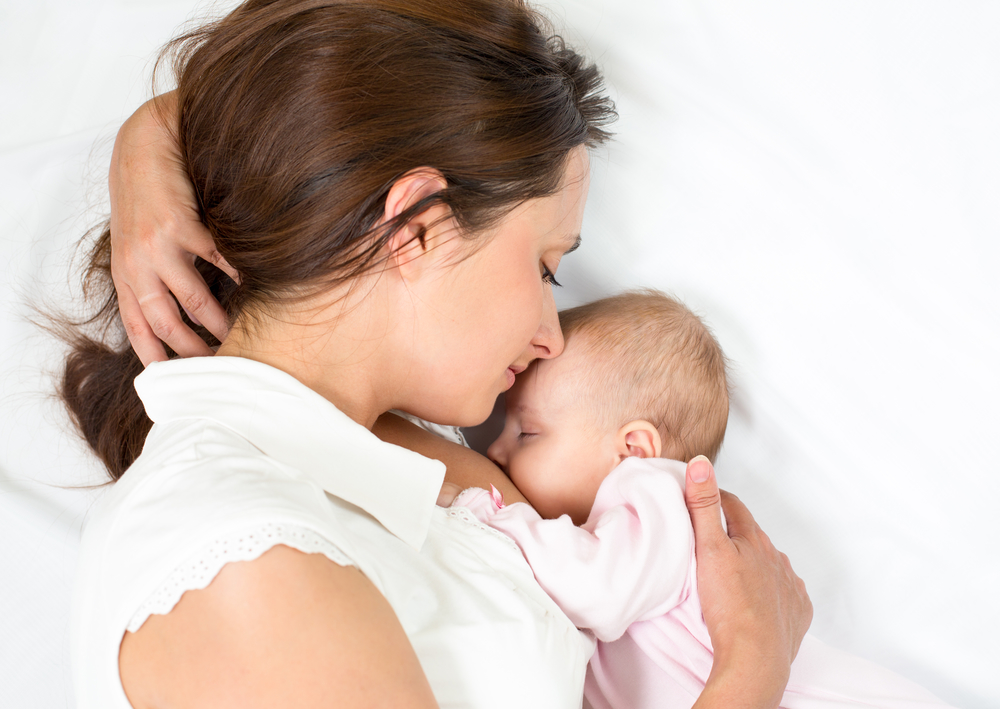by Susan Moore & Doreen Rosenthal
- You’re more relaxed, less of a perfectionist. You’ll trust your instincts; you’re aware that this little bundle is more robust than she looks. You won’t panic with every cry or sniffle, nor are you likely to compete with other mothers about baby’s milestones. You know they’ll develop in their own time, when they’re good and ready.
- Feeding is less fraught. If you didn’t manage breast-feeding with child one, here’s your chance to try again. If unsuccessful, at least you’re an expert with formula! Those who were successful with breast feeding with their first child will already know the techniques to attempt and have a feeling for how long to persist (and where to go for help) if there are problems.
- Your expectations will be more realistic. Your ideals about the perfect birth, co-sleeping, breast feeding, sleeping through the night or going back to work don’t always turn out as planned, but the second time around you are more likely to go with the flow. You’ve become more aware that there are different possible pathways to your goals of being a good parent and raising a healthy child, so you are more flexible and more willing to ask for help.
- People won’t make such a fuss of the second one. There will probably be fewer visits, gifts and flowers, so don’t be disappointed. You might find that this is a blessing in disguise, as you’ll feel far less need to keep the house always looking tidy, the baby perfectly turned out and home baked cookies on hand for when the great aunts pop in. Fewer thank you notes to write as well.
- You’ve got the stuff: If your children are close in age, you’ll have most of the equipment and lots of clothes, so there will be less expense.
- All help will be welcome: You’ll be more ready to accept support without worrying that your partner, mother, friend, or childcare worker is going to drop baby on her head, feed her the wrong food or make some other terrible mistake. Perhaps it’s trust, perhaps it’s exhaustion, but this time around you’ll be able to enjoy that sleep, shower, cup of coffee or special time with just one child without constant anxiety that your helpers are not up to the task.
- Jealousy will surface: Child number one will be jealous – at least some of the time. He’s had your full attention up until now, and no matter how well you have prepared him there will be moments when his emotions just cannot handle the unfairness of it all. At times he will regress, that is, become more babyish. For example, if he’s been toilet-trained he might start having accidents again. Be patient. Your toddler has some big emotions to manage and he is learning too. Getting him onside as a helper, giving him some special attention and some time alone with just you or your partner, treating him as ‘the grown up one’ are all strategies for alleviating his negative feelings.
- Multitasking is a must: You’ll need eyes in the back of your head, and to learn to multitask if you don’t already have those skills. The moment you get the baby settled to feed, or start to attend to a major nappy event, you’ll notice out the corner of your eye that the two-year-old has somehow got hold of the scissors/your lipstick/the cat’s tail. Be prepared!
- Excursions are harder to manage. Getting out the door will be a major undertaking. You need to plan ahead with nappy bag in readiness at all times, packed with spare nappies, wipes, drinks, and snacks. Extras in the car boot are a good idea as well, as is planning to leave home well before schedule. Some days you’ll just end up going back inside and abandoning the excursion. There’s always tomorrow.
- Sleep will be your most precious commodity: Yes, you remember sleepless nights from first time around, but sleep may be an even rarer treat if you are dealing with a new baby and a toddler. Don’t be surprised if your toddler’s sleep routine varies for a while. He’s adjusting too, so try to be patient as he climbs into bed with you just after baby finally nods off. It won’t last forever. If you can, sleep when they sleep during the day and work out a schedule with your partner so some of the nightly burden can be shared.
- Time alone with your partner will be harder to come by. Research shows that the post-childbirth period is a key stress point in marital relationships. It’s important that you both work creatively at finding times to be together in ways that are mutually relaxing and relationship affirming.
- Paid work – maybe, maybe not: For those of you in paid work, if the children are close in age, it will be more difficult to keep your career or paid working going for the first few years. It’s not only the physical load that is greater with two children, so is the mental load of organising and keeping track of all that needs to be done. If you can manage financially, consider taking time off, or accessing more flexible hours, to enjoy this very short stage in your children’s lives.
- Love expands: You might love your first child so much that you wonder if there will be enough love left over for a second. Don’t worry! Unlike your time, your love will double.
- Siblings play together (eventually): There will come a day, especially if the children are close in age, when they’ll spend hours together entertaining each other. It’s something to work towards and enjoy.
This article is an adapted excerpt from:
Moore, S. & Rosenthal, D. (2019). Second child: Everything you need to help you decide, plan for and enjoy a second child. NSW: Big Sky Publishing.
Like to know more? https://www.bigskypublishing.com.au/books/second-child/
Note: Emeritus Professor Susan Moore and Emeritus Professor Doreen Rosenthal are widely published developmental social psychologists whose major research interests encompass key transitions across life stages, including parenting, adolescence, grandparenting and retirement. They have co-authored ten books together, as well as dozens of refereed journal articles and book chapters.
You may also like to read:








